10 Stress-Less Parenting Tips for Kind Kids
10 Stress-Less Parenting Tips for Kind Kids:
Raising Warmhearted, Emotionally Smart Children & Promoting Happy Families
 For more details on the many topics covered in this article, please refer to my holistic health and lifestyle books UPLIFTED: 12 Minutes to More Joy, Faith, Peace, Kindness & Vitality, A HUG IN A MUG, and for children both the award-winning VEGETABLE SOUP/THE FRUIT BOWL and JOY & THE BUTTERFLY.
For more details on the many topics covered in this article, please refer to my holistic health and lifestyle books UPLIFTED: 12 Minutes to More Joy, Faith, Peace, Kindness & Vitality, A HUG IN A MUG, and for children both the award-winning VEGETABLE SOUP/THE FRUIT BOWL and JOY & THE BUTTERFLY.
Here's an info flyer for JOY & THE BUTTERFLY
Here's a flyer for VEGETABLE SOUP/THE FRUIT BOWL
Raising kids is one of the toughest and most fulfilling jobs in the world—and the one for which you might feel the least prepared. Whether you’re running late for school, trying to get your child to eat their vegetables, or dealing with an epic meltdown in the checkout line at a grocery store—being a parent is hard work! And, as parents, many of us react in times of stress without thinking—often by yelling or being negative. But what if, instead of always reacting on autopilot, you could respond thoughtfully in those moments, keep your cool, and get from A to B on time and in one piece?
In this article, I cover some powerful, mindfulness skills for calming your own stress response when difficult emotions 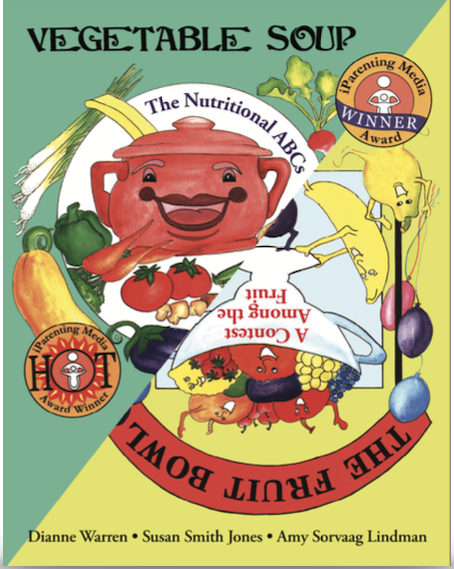 arise. You’ll also discover strategies for cultivating respectful communication, effective conflict resolution, and reflective listening. In the process, you’ll learn to examine your own unhelpful patterns and ingrained reactions that reflect the generational habits shaped by your parents, so you can break the cycle and respond to your children in more skillful ways.
arise. You’ll also discover strategies for cultivating respectful communication, effective conflict resolution, and reflective listening. In the process, you’ll learn to examine your own unhelpful patterns and ingrained reactions that reflect the generational habits shaped by your parents, so you can break the cycle and respond to your children in more skillful ways.
As I teach in my new books, JOY & THE BUTTERFLY: The Magical Garden and UPLIFTED, when children experience a parent reacting with kindness and patience, they learn to act with kindness as well—thereby altering generational patterns for a kinder, more compassionate future. You’ll see how changing your own “autopilot reactions” can create a lasting positive impact, not just for your kids, but for generations to come. A kinder, more compassionate world starts with kind and compassionate kids. In my two new books, you’ll find additional and life-enriching powerful, practical strategies to raise kind, cooperative, and confident kids.
IN WRITTEN FORM: Here are some excerpts from my recent interview on this topic on the show This Week in America with host Ric Bratton. I will post the interview shortly, if you’d prefer to listen rather than read.
✅ 1. Susan, let’s go right into your first positive healthy living suggestions for all families.
Yes, here are my 10 child-rearing tips to help parents, grandparents, teachers and all other caretakers to feel more fulfilled in their very important roles of raising kindhearted and emotionally stable kids. First, I will focus briefly on how to create healthy children with four quick tips and then go into the next nine.
⭐️ A. Variety is the spice of life. Always have a variety of colorful fruits and veggies on hand and let the kids help with the selection of produce in the market and the preparation of food at home. Studies show that the children that help create the fresh food meals are most apt to eat the food once prepared. This goes for school lunches, too. Let your child help you create a power lunch to take to school. Baby veggies and easy fruit, such as delicious satsuma tangerines or fresh berries, are easy to eat in a hurry (for a snack) and provide quick energy. Strive for 7 servings of vegetables. That’s not hard to do when you have colorful salads and soups. Find ways to make these health breaks fun and rewarding.
⭐️ B. Keep your home a junk food-free zone. The saying, “out of sight, out of mind” is certainly true when it comes to junk foods. Keep highly processed, refined foods to the bare minimum at home. Let your child choose from a variety of fresh, whole foods rather than always deciding for them what they should be eating. In other words, give them back the power to choose but make sure you offer them a variety of healthy foods from which to select.
⭐️ C. Break the food seduction. Processed foods -- those high in sugar, white flour, 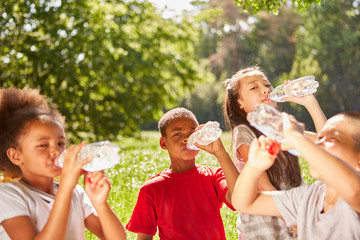 salt, preservatives, and additives -- are very addicting. The more they’re eaten, the more they’re craved. That goes for children, teens, and adults. It’s best to begin each meal with a nutrient-dense, high fiber food so children receive nutrients before consuming any empty calorie foods (those with high calories and little to no nutritional value).
salt, preservatives, and additives -- are very addicting. The more they’re eaten, the more they’re craved. That goes for children, teens, and adults. It’s best to begin each meal with a nutrient-dense, high fiber food so children receive nutrients before consuming any empty calorie foods (those with high calories and little to no nutritional value).
⭐️ D. Make quality sleep and plenty of water priorities. Lack of sleep and pure water exacerbates the craving for processed foods. Establish a nightly sleep routine, encourage ample water drinking, and offer a variety of whole foods. Feeling tired and cranky, lacking energy, or becoming moody is often a sign of dehydration and/or lack of sleep. Sleep, water, and the consumption of a variety of colorful, healthy foods needs to be non-negotiable daily ritual.
Feeling tired and cranky, lacking energy, or becoming moody is often a sign of dehydration and/or lack of sleep. Sleep, water, and the consumption of a variety of colorful, healthy foods needs to be non-negotiable daily ritual.
✅ 2. Boosting our child’s self-esteem: Why is this so very important?
Kids start developing their sense of self as babies when they see themselves through their parents' eyes. Your tone of voice, your body language, and your every expression are absorbed by your kids. Your words and actions as a parent affect their  developing self-esteem more than anything else.
developing self-esteem more than anything else.
Praising accomplishments, however small, will make them feel proud; letting kids do things independently will make them feel capable and strong. By contrast, belittling comments or comparing a child unfavorably with another will make kids feel worthless.
Avoid making loaded statements or using words as weapons. Comments like "What a  stupid thing to do!" or "You act more like a baby than your little sister!" cause damage just as physical blows do.
stupid thing to do!" or "You act more like a baby than your little sister!" cause damage just as physical blows do.
Choose your words carefully and be compassionate. Let your kids know that everyone makes mistakes and that you still love them, even when you don't love their behavior.
✅ 3. Being attentive when kids are doing the right things: How do we do this?
Have you ever stopped to think about how many times you react negatively to your kids in a given day? You may find yourself criticizing far more often than complimenting. How  would you feel about a boss who treated you with that much negative guidance, even if it was well-intentioned?
would you feel about a boss who treated you with that much negative guidance, even if it was well-intentioned?
The more effective approach is to catch kids doing something right: "You made your bed without being asked — that's terrific!" (refer to this storyline about making a bed and cleaning up her room in JOY & THE BUTTERFLY: The Magical Garden) or "I was watching you play with your sister and you were very patient." These statements will do more to encourage good behavior over the long run than repeated scoldings. Make a point of finding something to praise every day. Be generous with rewards — your love, hugs, and compliments can work wonders and are often reward enough. Soon you will find you are "growing" more of the behavior you would like to see.
Make a point of finding something to praise every day. Be generous with rewards — your love, hugs, and compliments can work wonders and are often reward enough. Soon you will find you are "growing" more of the behavior you would like to see.
✅ 4. Be consistent with your discipline and set limits: Talk about this essential strategy.
Discipline is necessary in every household. The goal of discipline is to help kids choose acceptable behaviors and learn self-control. They may test the limits you establish for them, but they need those limits to grow into responsible adults.
Establishing house rules helps kids understand your expectations and develop self- control. Some rules might include: no TV until homework is done, and no hitting, name-calling, or hurtful teasing allowed.
control. Some rules might include: no TV until homework is done, and no hitting, name-calling, or hurtful teasing allowed.
You might want to have a system in place: one warning, followed by consequences such as a "time-out" or loss of privileges. A common mistake parents make is not following through with consequences. You can't discipline kids for talking back one day and ignore it the next. Being consistent teaches what you expect.
✅ 5. Make time for your kids: What are your suggestions to make this work?
It's often hard for parents and kids to get together for a family meal, as I write about often in JOY & THE BUTTERFLY: The Magical Garden, let alone spend quality time together. But there is probably nothing kids would like more. Get up 10 minutes earlier in the morning so you can eat breakfast with your child or leave the dishes in the sink and take a walk after dinner. Kids who aren't getting the attention they want from their parents often act out or misbehave because they're sure to be noticed that way.
Many parents find it rewarding to schedule together time with their kids. Create a "special  night" each week to be together and let your kids help decide how to spend the time. Look for other ways to connect — put a note or something special in your kid's lunchbox.
night" each week to be together and let your kids help decide how to spend the time. Look for other ways to connect — put a note or something special in your kid's lunchbox.
Teens seem to need less undivided attention from their parents than younger kids. Because there are fewer windows of opportunity for parents and teens to get together, parents should do their best to be available when their teen does express a desire to talk or participate in family activities. Attending concerts, games, and other events with your teen communicates 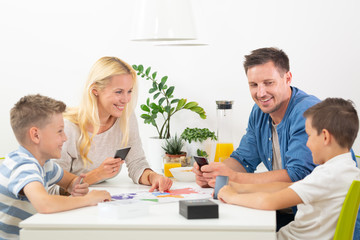 caring and lets you get to know more about your child and his or her friends in important ways.
caring and lets you get to know more about your child and his or her friends in important ways.
Don't feel guilty if you're a working parent. It is the many little things you do — making popcorn, playing cards, window shopping — that kids will remember.
✅ 6. Be a good role model: What traits do we want to model to our kids?
Young kids learn a lot about how to act by watching their parents. The younger they are, the more cues they take from you. Before you lash out or blow your top in front of your child, think about this: Is that how you want your child to behave when angry? Be aware  that you're constantly being watched by your kids. Studies have shown that children who hit usually have a role model for aggression at home.
that you're constantly being watched by your kids. Studies have shown that children who hit usually have a role model for aggression at home.
Model the traits you wish to see in your kids: respect, friendliness, honesty, kindness, tolerance – a few of the many traits I write about in JOY & THE BUTTERFLY: The Magical Garden. Exhibit unselfish behavior. Do things for other people without expecting a reward like Joy learns about in the book’s chapter on “Paying It Forward” and the importance of living by the Golden Rule. Express thanks and offer compliments. Above all, treat your kids the way you expect other people to treat you.
✅ 7. Make communication a priority: How do we communicate effectively?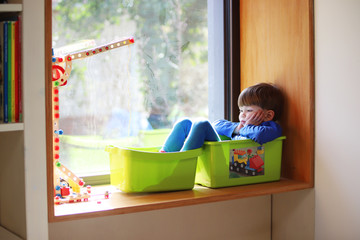
You can't expect kids to do everything simply because you, as a parent, "say so." They want and deserve explanations as much as adults do. If we don't take time to explain, kids will begin to wonder about our values and motives and whether they have any basis. Parents who reason with their kids allow them to understand and learn in a nonjudgmental way.
Make your expectations clear. If there is a problem, describe it, express your feelings, and invite your child to work on a solution with you. Be sure to include consequences. Make suggestions and offer choices. Be open to your child's suggestions a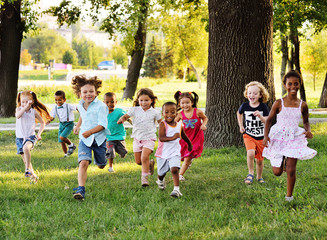 s well. Negotiate. Kids who participate in decisions are more motivated to carry them out.
s well. Negotiate. Kids who participate in decisions are more motivated to carry them out.
✅ 8. Be flexible and willing to adjust your parenting style: What do you mean by this?
If you often feel "let down" by your child's behavior, perhaps you have unrealistic expectations. Parents who think in "shoulds" (for example, "My kid should be potty-trained by now") might find it helpful to read up on the matter or to talk to other parents or child development specialists.
Kids' environments have an effect on their behavior, so you might be able to change that behavior by changing  the environment. If you find yourself constantly saying "no" to your 2-year-old, look for ways to alter your surroundings so that fewer things are off-limits. This will cause less frustration for both of you. Active kids who spend time outdoors are happier kids.
the environment. If you find yourself constantly saying "no" to your 2-year-old, look for ways to alter your surroundings so that fewer things are off-limits. This will cause less frustration for both of you. Active kids who spend time outdoors are happier kids.
As your child changes, you'll gradually have to change your parenting style. Chances are, what works with your child now won't work as well in a year or two.
Teens tend to look less to their parents and more to their peers for role models. But continue to provide guidance, encouragement, and appropriate discipline while allowing your teen to earn more independence. And seize every available moment to make a connection!
✅ 9. Show that your love is unconditional: This goes for everyone, children and 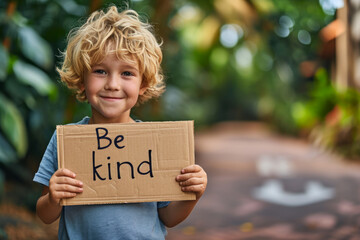 adults alike, right, because I know you wrote about maintaining a loving heart and being benevolent in JOY & THE BUTTERFLY?
adults alike, right, because I know you wrote about maintaining a loving heart and being benevolent in JOY & THE BUTTERFLY?
As a parent, you're responsible for correcting and guiding your kids. But how you express your corrective guidance makes all the difference in how a child receives it.
When you have to confront your child, avoid blaming, criticizing, or fault-finding, which hurt self-esteem and can lead to resentment. Instead, try to nurture and encourage, even 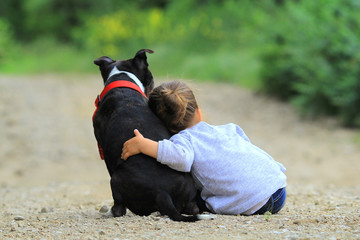 when disciplining your kids. Make sure they know that although you want and expect better next time, your love is there no matter what.
when disciplining your kids. Make sure they know that although you want and expect better next time, your love is there no matter what.
✅ 10. Know your own needs and limitations as a parent: As you write about in UPLIFTED, we need to fill our own cup first and take care of our well-being so that we can be a better parent on all levels. Tell us about this?
Let’s face it — you are an imperfect parent. You have strengths and weaknesses as a 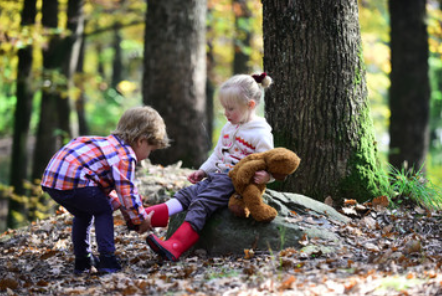 family leader. Recognize your abilities — "I am loving and dedicated." Vow to work on your weaknesses — "I need to be more consistent with discipline." Try to have realistic expectations for yourself, your partner, and your kids. You don't have to have all the answers — be forgiving of yourself.
family leader. Recognize your abilities — "I am loving and dedicated." Vow to work on your weaknesses — "I need to be more consistent with discipline." Try to have realistic expectations for yourself, your partner, and your kids. You don't have to have all the answers — be forgiving of yourself. And try to make parenting a manageable job. Focus on the areas that need the most attention rather than trying to address everything all at once. Admit it when you're burned out. Take time out from parenting to do things that will make you happy.
And try to make parenting a manageable job. Focus on the areas that need the most attention rather than trying to address everything all at once. Admit it when you're burned out. Take time out from parenting to do things that will make you happy.
Focusing on your needs does not make you selfish. It simply means you care about your own well-being, which is another important value to model for your children.
⭐️ ⭐️ ⭐️
For more info on these topics, please refer to my two children's books JOY & THE BUTTERFLY and VEGETABLE  SOUP/THE FRUIT BOWL and also A HUG IN A MUG and UPLIFTED: 12 Minutes to More Joy, Faith, Peace, Kindness & Vitality. You might also enjoy my faith-based book WIRED TO HIGH-LEVEL WELLNESS.
SOUP/THE FRUIT BOWL and also A HUG IN A MUG and UPLIFTED: 12 Minutes to More Joy, Faith, Peace, Kindness & Vitality. You might also enjoy my faith-based book WIRED TO HIGH-LEVEL WELLNESS.
⭐️ Here's an info flyer for JOY & THE BUTTERFLY
⭐️ Here's a flyer for VEGETABLE SOUP/THE FRUIT BOWL
⭐️ Here's a flyer on A HUG IN A MUG
⭐️ Here's a book review on UPLIFTED


